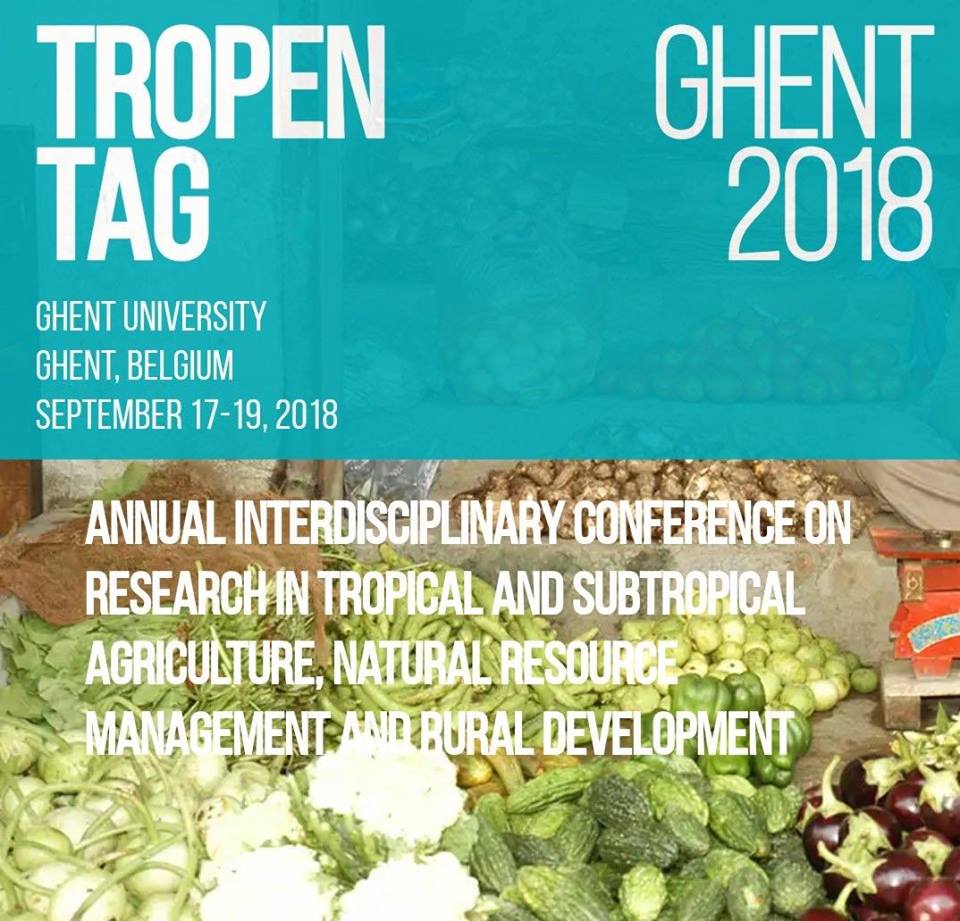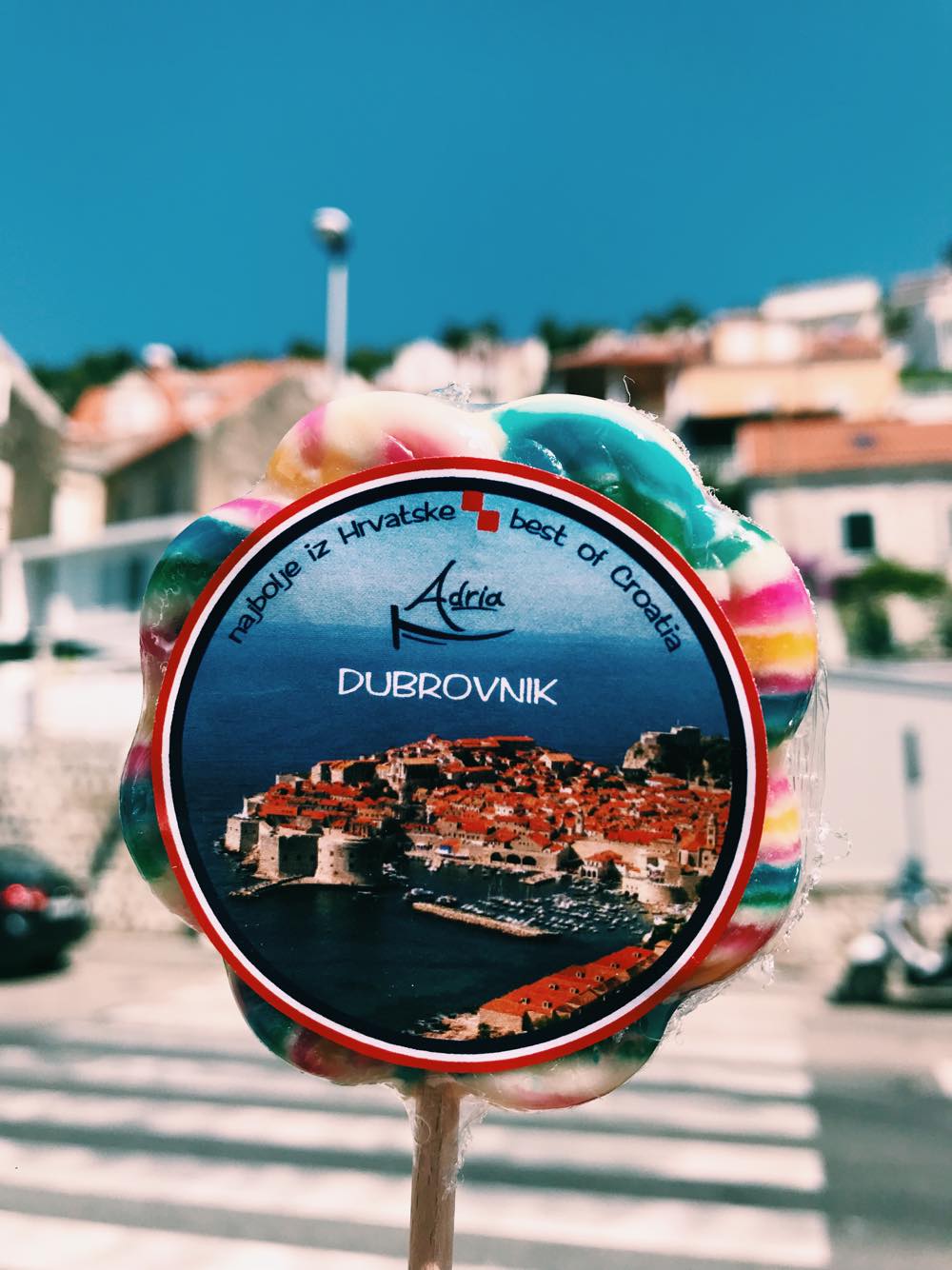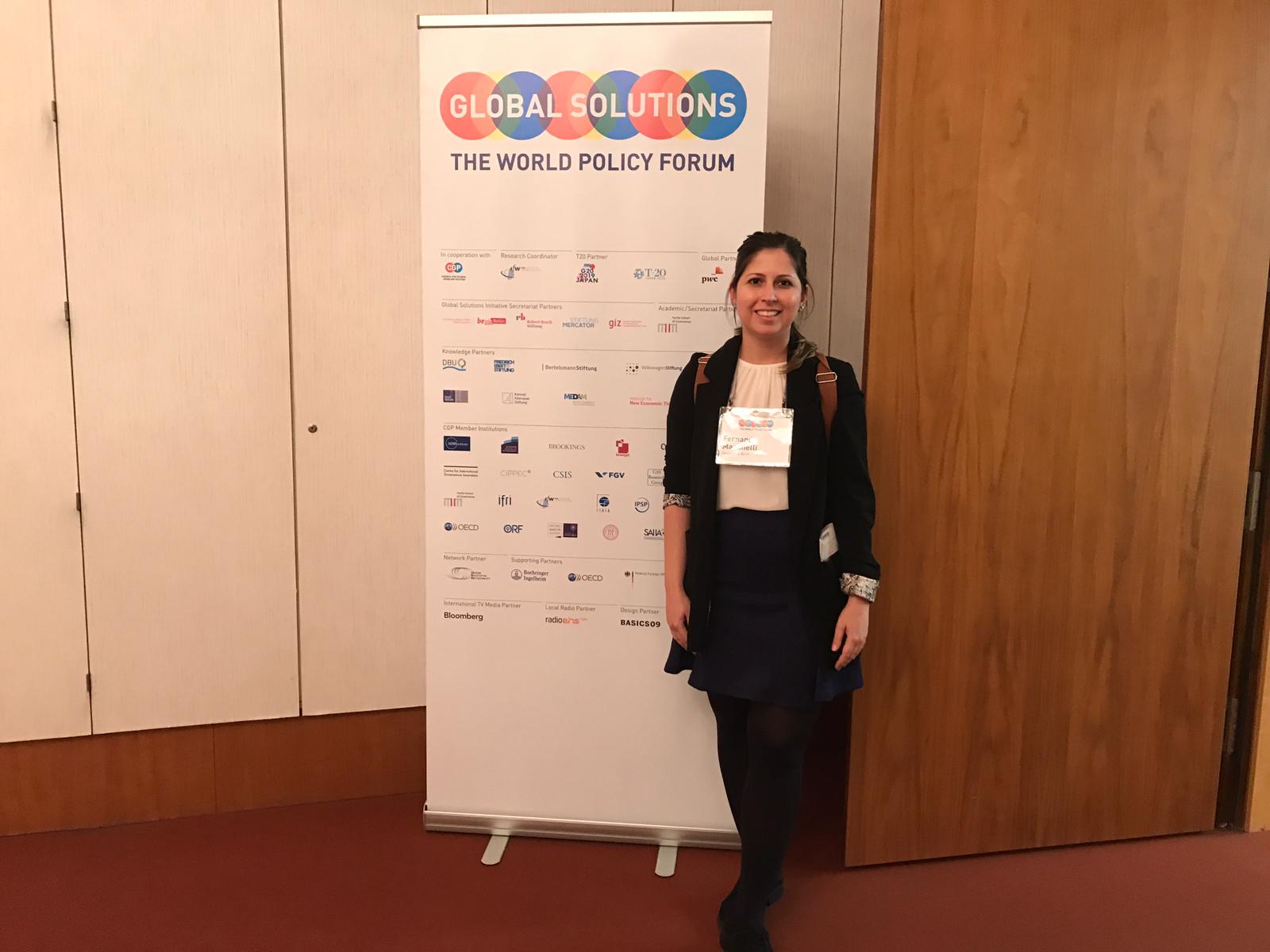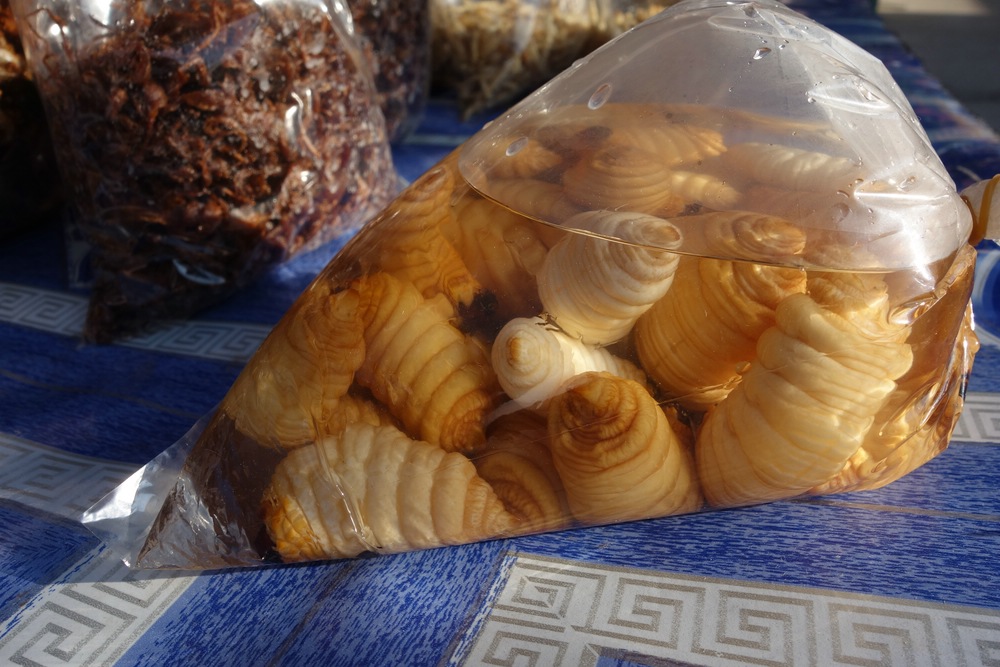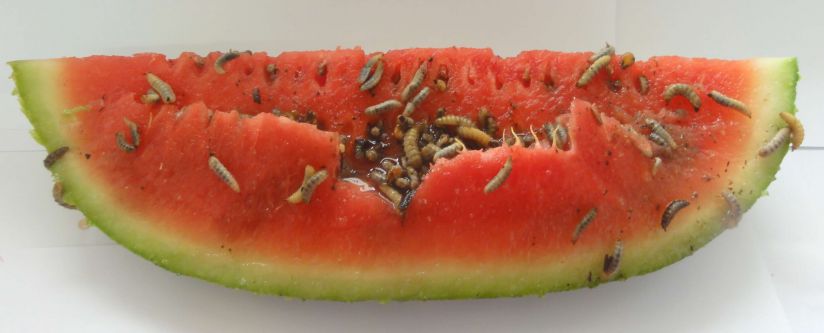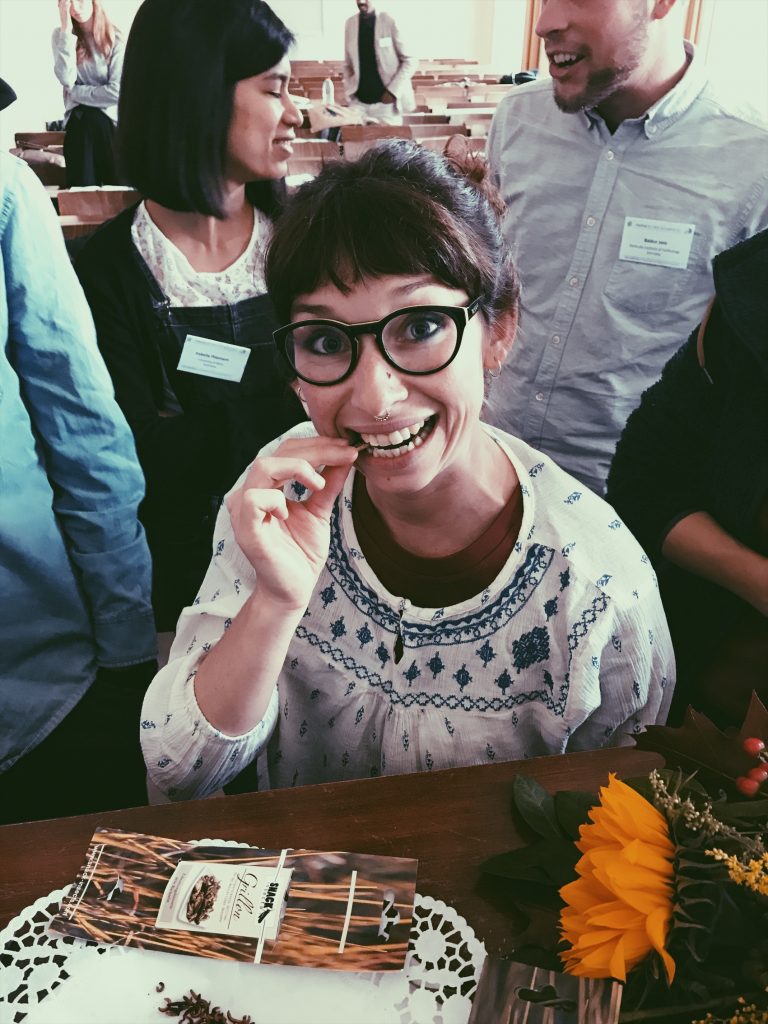When Tropentag goes to Ghent
Marwa was train hopping from Bonn to Beautiful Ghent the other day ,yet on another insects related trip.
[aesop_gallery id=”3774″ revealfx=”off” overlay_revealfx=”off”]
Tropentag 2018 just took place on the 17th to the 19th of September and this time it was hosted by the University of Ghent in Ghent, Belgium. For those wondering what Tropentag is, it’s the “Annual interdisciplinary conference on Research in tropical and subtropical agriculture, Natural Resource Management and Rural Development” and thus shortly branded Tropentag. I was also awarded the AGRINATURA travel grant to attend this conference. AGRINATURA is a grouping of European universities and research organizations with a common interest in supporting agricultural development in a sustainable manner in order to improve people’s lives. You can learn more about AGRINATURA via their website https://agrinatura-eu.eu/about-us/
Why I like Tropentag is because it is a development-oriented and interdisciplinary conference. Meaning It addresses issues of resource management, environment, agriculture, forestry, fisheries, food, nutrition and related sciences within the context of rural development, sustainable resource use and poverty alleviation worldwide. Agriculture has made remarkable advances over the last decades in increasing quantity and quality of food produce, but its contribution to improving the nutrition and health of poor farmers and consumers in developing countries often still lags behind. In cases where food provision is structurally guaranteed, food quality may still be a problem. Agricultural research and universities have an important role in addressing and solving both food security and food safety. They should do this in collaboration with international non-governmental donor and policy-oriented organizations, with respect for local, regional and global socioeconomic and cultural situations, legal conditions, markets and market mechanisms, limitations and opportunities, gender equity and the natural resource environment, in order to provide for sustainable solutions. In line with this background, this year’s Tropentag theme was “Global food security and food safety: The role of universities”.
[aesop_gallery id=”3789″ revealfx=”off” overlay_revealfx=”off”]
I presented an oral presentation titled “Development and Implementation of Insect-Based Products to Enhance Food and Nutritional Security in Sub-Saharan Africa”. I talked about EntoNutri project, a complementary partnership of icipe, University of Bonn, University of Hohenheim’s Food Security Centre (FSC), and national agricultural research systems (NARS) from Kenya and Uganda to enhance food and nutritional security through the use of insects as food and sponsored by the Federal Ministry for Economic Cooperation and Development (BMZ).
Why insects? Why Kenya and Ughanda?
With a growing world population, increasingly demanding consumers and a limited amount of agricultural land, there is an urgent need to find alternatives to conventional meat products. Livestock production is a leading cause of anthropogenic-induced climate change. More sustainable diets are needed, with reduced meat consumption or the use of alternative protein sources. Insects are promoted as human food and animal feed worldwide. In tropical countries, edible insects are harvested naturally, but overexploitation, habitat changes, and environmental contamination threaten this resource. Therefore, sustainable harvesting practices need to be developed and implemented. The consumption of crickets (e.g. the house cricket Acheta domesticus), the longhorn grasshopper (Ruspolia differens), and a variety of saturniid caterpillars (e.g. Imbrasia zambesina and Cirina forda) is part of the food culture of some communities in Kenya and Uganda and constitutes 5–10% of protein intake of the rural and urban populace. For many, trade in edible insects is a major source of income and considerably contribute to livelihood improvements. Therefore, the development and implementation of research and knowledge construction on sustainable rearing and harvesting techniques to ensure that insect products are safe for human consumption is necessary. Insects can be contaminated by heavy metals or insecticides, therefore their use for food should be screened for risks to humans, animals, plants, and biodiversity. Moreover, edible insects are harvested from the wild in tropical countries which might lead to overexploitation, habitat changes, and environmental contamination of this resource. In this context, EntoNutri is researching the use and potential of edible insects to promote insect-based technologies and enhance the productivity and consumption of insects as a food and nutrition security tool. This multinational and multidisciplinary project has brought important results. Findings suggest major environmental advantages of insect farming compared to livestock production: (1) limited land and water consumption; (2) lower greenhouse gas emissions; (3) higher feed conversion efficiencies; (4) transformation of low-value organic by-products into high-quality food or feed. However, edible insect species intended for production should be screened for risks to humans, animals, plants, and biodiversity. As a conclusion, edible insect´s production and commercialization could improve the well-being of select rural communities around the world.
[aesop_gallery id=”3799″ revealfx=”off” overlay_revealfx=”off”]
While in Ghent, I stayed in an Asian themed room and the surroundings reminded me of my time in India while the rest of the hotel was of an Imperial touch. I was lucky to find sometime to see Ghent’s Altarpiece at St Bavo’s Cathedral although it was not allowed to take photographs inside the cathedral.
[aesop_gallery id=”3801″ revealfx=”off” overlay_revealfx=”off”]
When I got back to Bonn, I discovered that ZEF news was out and that ZEF’s website was pimped and it has now a more prettier interface and so many photos of the Lady of the Flies as you can see underneath.
[aesop_gallery id=”3800″ revealfx=”off” overlay_revealfx=”off”]
